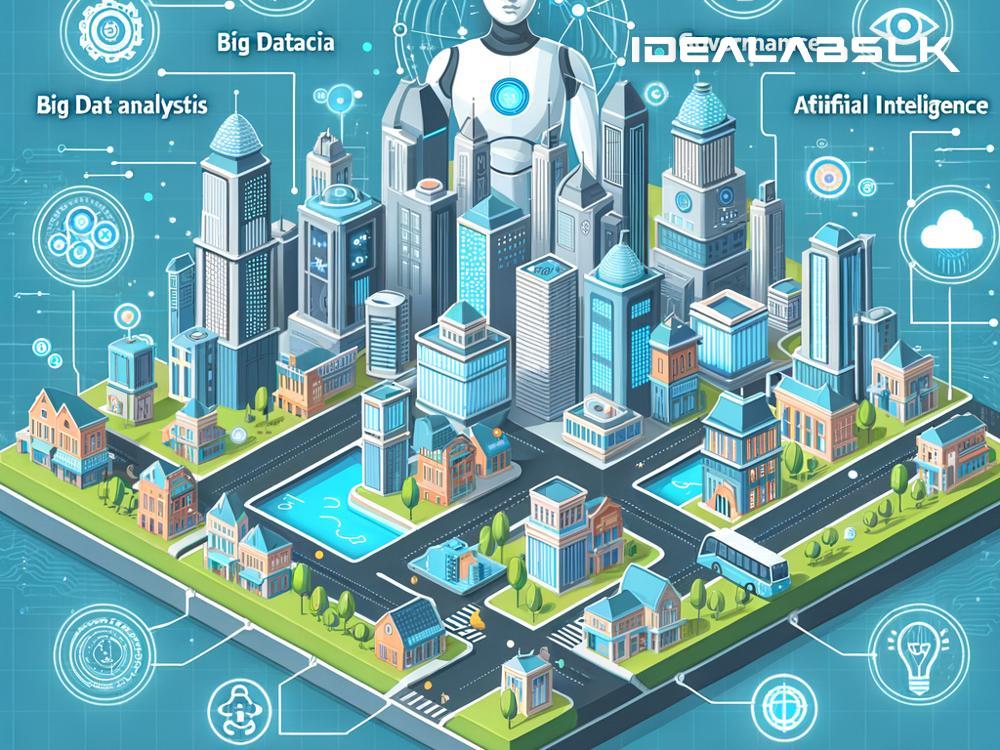Unlocking Tomorrow: The Future of Data-Driven Policy Making
In today's fast-paced world, the vast amount of information available at our fingertips is truly astounding. Every click, every search, and every online purchase generates data. But it's not just our digital activities that are being tracked. From healthcare records to traffic patterns, modern life is constantly being quantified. This sea of data holds the power to transform how decisions are made, especially when it comes to the policies that shape our society. Let's take a closer look at the promising future of data-driven policy making.
What is Data-Driven Policy Making?
Simply put, data-driven policy making means using facts, statistics, and evidence collected from various sources to make decisions about what policies should be implemented. It's about moving away from making decisions based on assumptions, intuition, or political motivations and instead relying on concrete data to guide actions that affect public life.
Why is it a Big Deal?
Think of it this way: when you're sick, you want your doctor to diagnose and treat you based on the latest medical research and your specific health data, not on a hunch. Similarly, when it comes to governing, using solid data to inform policies ensures that resources are used efficiently, and solutions are tailored to the actual needs of the population. It makes the policy-making process more transparent, accountable, and effective.
The Future Looks Bright
The future of data-driven policy making is not just promising; it's already beginning to take shape. Here are a few ways it is expected to evolve:
-
Smarter Cities: Imagine a city where traffic flows smoothly, public transport arrives exactly when you need it, and public spaces are safe at any time of the day. This isn't just a dream. By analyzing data on traffic patterns, public transport usage, and crime rates, city planners can make informed decisions to improve the quality of urban life.
-
Healthcare that Hits the Mark: Data can pave the way for preventive healthcare, personalized treatment plans, and swift responses to outbreaks. With access to anonymized health records and real-time disease tracking, policymakers can allocate resources more effectively and ensure that healthcare systems are prepared to meet the needs of the population.
-
Education that Adapts: Every learner is unique, and data can help tailor education systems to better serve individual needs. By analyzing data on student performance, attendance, and engagement, educators can identify what works and what doesn't, leading to more personalized and effective teaching methods.
-
A Greener Tomorrow: Climate change is one of the most pressing issues of our time, and data is crucial in the fight against it. By monitoring pollution levels, energy consumption, and deforestation rates, policies can be crafted to safeguard our planet for future generations.
Challenges on the Horizon
While the potential benefits are enormous, the path to widespread adoption of data-driven policy making is not without its obstacles. Privacy concerns, data security, and the digital divide are just a few of the challenges that need to be addressed. Ensuring that data is used ethically and that everyone has fair access to the benefits of this approach will be paramount.
Moreover, simply having data isn't enough. Governments and organizations must also invest in the skills and technology required to analyze this data and translate it into actionable insights.
A Collaborative Effort
The future of data-driven policy making is not solely in the hands of governments and policymakers. It requires collaboration between public and private sectors, non-profit organizations, and the academic community. By working together, it's possible to harness the power of data while ensuring it is used responsibly and ethically.
Conclusion
The era of data-driven policy making is upon us, offering a roadmap to a future where decisions are grounded in evidence, resulting in more effective, efficient, and equitable policies. While there are hurdles to overcome, the potential to improve lives and protect our planet makes this a journey well worth undertaking.
As we stand on the brink of this new era, it's clear that embracing data-driven policy making is not just an option – it's a necessity. By harnessing the power of data, we can unlock a brighter, more informed future for everyone.

